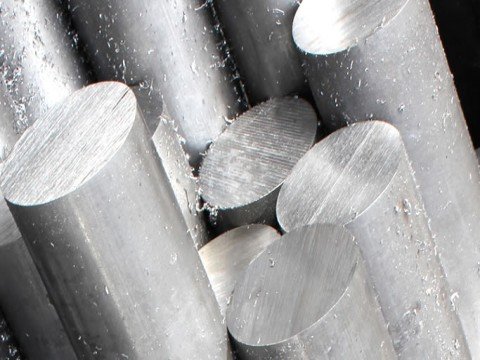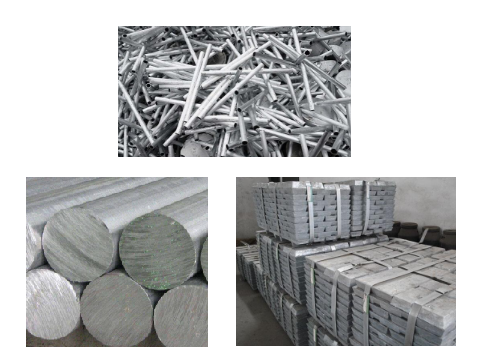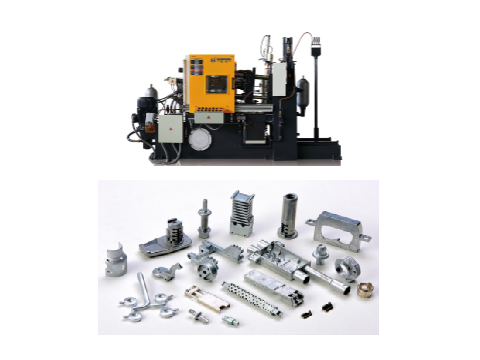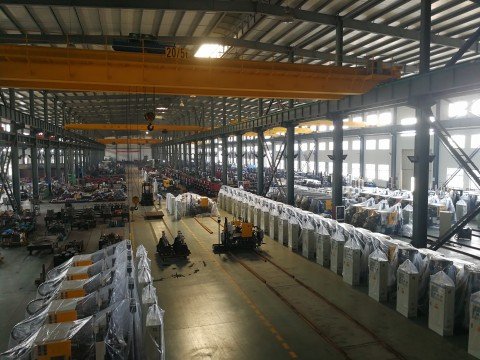The most common metals used in hot chamber die casting are zinc, magnesium, and aluminum alloys, chosen for their low melting points, good fluidity, and ability to produce high-quality, intricate parts efficiently.
The hot chamber die casting process is an order of magnitude faster than other methods of casting die metals and allows greater detail and matters of precision to be Advantaged to lower melting metals that require minimal effort to pour in to molds.
As the author points out the Metals type is the most important decision as far as the die’s structure and functionality is concerned.
In hot chamber die casting the following metals are used and we describe them in detail which in my opinion will be most helpful.

Most commonly used metals
- Zinc
- Magnesium
- Tin
- Lead
Zinc
Hot chamber die casting uses zinc more than other metals. Its melting point of 420°C is relatively low and works fluently with producing thin walled and elaborate pieces. Zinc alloys like the Zamak zinc alloy with aluminum, magnesium, and copper has high strength with good corrosion resistance while maintaining a strong surface. Zinc alloys are used in the automotive and electronics industry, in addition, consumer products.
Magnesium
Another metal used in hot chamber die casting is magnesium. It is the lightest in weight out of other metals which is an advantage for lightweight use. They have high strength to weight ratio, good stability, and damping. They are used in the auto and aerospace industry for engine parts, transmission cases and other structural parts. Also, magnesium has a low melting point of 650°C and good fluidity, which is great for hot chamber die casting.
Tin
The uses of tin in hot chamber die casting includes its low melting point of 232°C and superb corrosion resistance. It such as tin-antimony and tin-bismuth, are known for their excellent surface finish and dimensional accuracy. These alloys are frequently utilized in sectors that demand substantial resistance to corrosion, along with good electric conductivity, such as in plumbing and electronic components.
Lead
Lead has its uses in hot chamber die casting because of its good corrosion resistance and low melting point of 327°C. Which are particularly useful for applications requiring radiation shielding, such as in medical and nuclear industries. Despite this, lead is an extremely hazardous material, and with growing concern for the environment, the material is being substituted with safer alternatives.

Key Considerations for Material Selection
Melting Point and Equipment Compatibility
- For hot chamber die casting machines, the upper design temperature limit is 450°C. As for materials, the best choices are zinc, magnesium and lead-tin as they are allald mastered of low-temperat high-temperature.
Flowability
- Zinc alloys are best for both flowability and temperature, being 385°C and optimally fill structures of 0.4mm. magnesium alloys require strict oxidation control with an inert gas shield, or risk the flowability.
Economics and Production Efficiency
- Zn alloys: Hot chamber die casting has a high material use efficiency of over 95% and a fast cycle time of 15-20 cycles per minute.
- Magnesium alloys: Lighter in weight but more expensive than other types of metals.
Environmental Protection and Sustainability
- Lead alloys are being phased out due to environmental regulations. Zinc and magnesium alloys fully align with green trend as they are 100% recyclable.

Typical Application Scenarios Analysis
| Metals | Applications | Representative Products |
| Zinc Alloys | Automotive, Electronics, Consumer Goods | Door handles, gears, connectors, housings |
| Magnesium Alloys | Automotive Lightweighting, Aerospace, 3C (Consumer Consumer Goods) | Steering wheel frames, laptop cases, drone components |
| Lead-Tin Alloys | Electronics, Specialty Counterweights | Solders, Counterweights, Radiation Shielding |

The Role of HAICHEN Die Casting Machines
HAICHEN is one of the main die casting machine producers and is therefore key to improving the hot chamber die casting process. Our machines are high precision and dependable in quality and repeatability while being user-friendly. The following HAICHEN machine features are critical for die casting quality:
- Precision Control: The automation of the die casting process with HAICHEN machines enables the accurate regulation of process variables like the injection speed and pressure, as well as the temperature, which eliminates defects and enhances the quality of the parts.
- Die Casting Energy Efficiency: The environmental and operational costs are greatly reduced with HAICHEN machines because of the energy efficiency operations incorporated in the machine.
- Automation: The machine features like robotic part pick up and quality control make automation of processes possible. These features positively impact productivity and reduce the costs associated with labor.

Hot chamber die casting is a versatile and efficient process for producing high-quality metal parts. The most common metals used in this process include zinc, magnesium, tin, and lead, each offering unique properties suitable for various applications.



